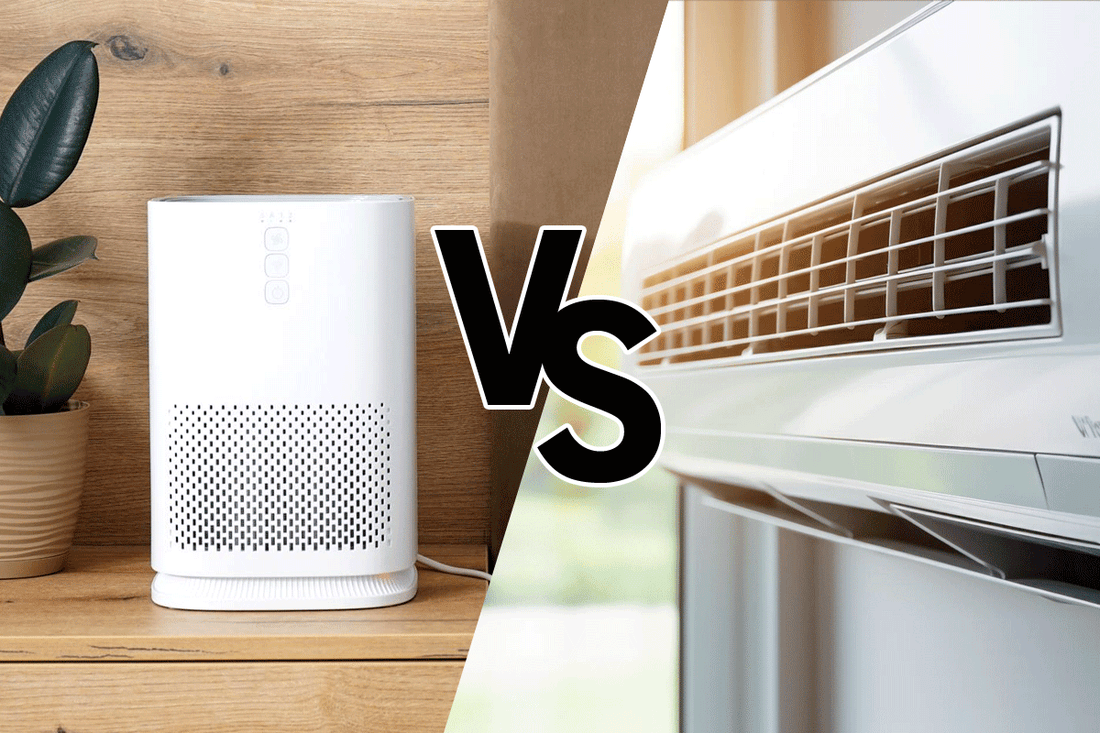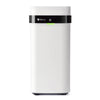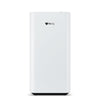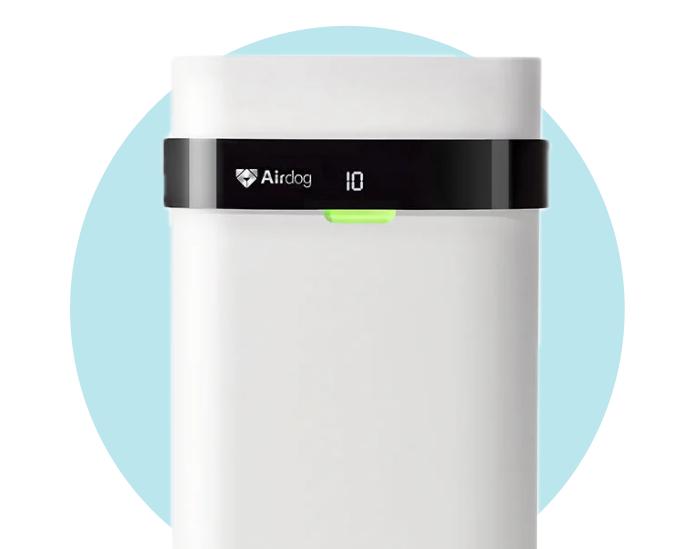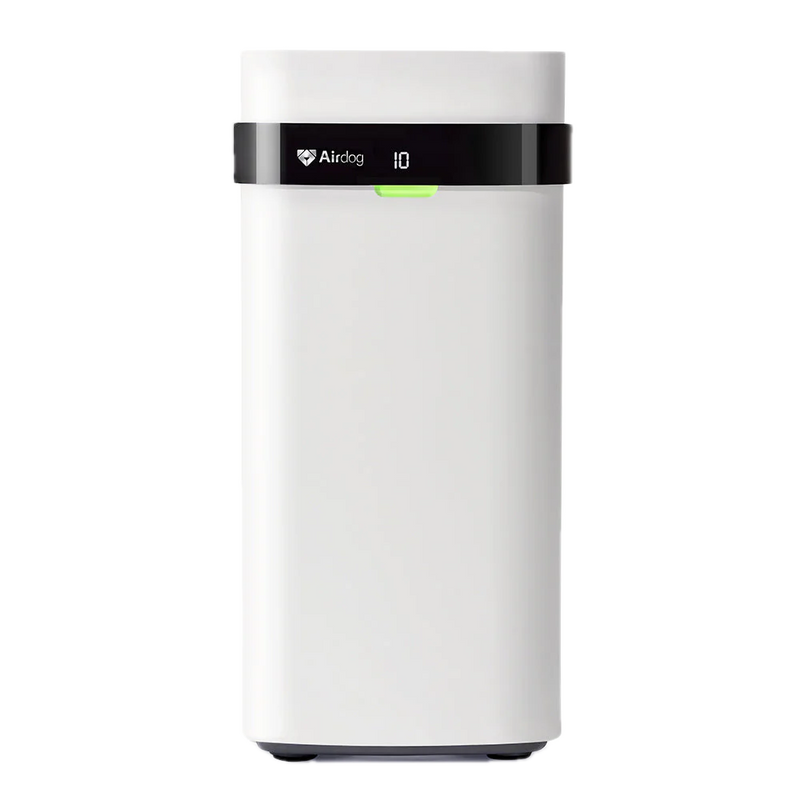As health and well-being take center stage, understanding how our indoor environment affects us has never been more important. The air conditioners we rely on to stay cool in summer and warm in winter don’t just regulate temperature, they also play a role in the air we breathe. But that raises the critical question: do air conditioners filter air, and if so, how effectively?
In this article, we’ll break down how AC systems work, what they can (and can’t) do in terms of filtration, and how that compares to dedicated air purifiers. By separating fact from misconception, you’ll gain a clearer picture of whether your AC alone is enough to keep your indoor air clean or if pairing it with a purifier is the smarter choice. Get ready to uncover insights that will help you breathe easier and make informed decisions about your living environment.
How Air Conditioners Handle Air Filtration
Air conditioners serve a dual purpose in our lives: they regulate indoor temperatures to keep us comfortable across seasons and play a role in filtering the air we breathe. Understanding how these units contribute to indoor air quality begins with a look at their basic mechanics:
-
Air Circulation and Cooling: At its core, an air conditioner draws in warm air from its surroundings, cools it by passing it over a refrigerant, and then redistributes the cooled air back into the room. This process not only lowers the temperature but also circulates air within the space.
-
Built-in Filtration System: Integral to this process is the air conditioner's filtration system. Most units come equipped with filters that trap dust, pollen, and other larger airborne particles before recirculating the air. This built-in feature helps reduce the amount of particulate matter in the indoor environment, contributing to cleaner air.
-
Limitations and Capabilities: However, it's crucial to understand the limitations of standard AC units in air filtration. While air conditioners can prevent larger particles from circulating back into the room, they are not primarily designed as air purifiers. Therefore, their effectiveness against smaller particulates like pathogens, allergens, or fine particle pollution is limited.
The difference between air purifiers and air conditioners is crucial for setting realistic expectations about indoor air quality. While air purifiers are built to target a wide range of airborne pollutants (including particles too small for standard AC filters), air conditioners are primarily designed for temperature control. Recognizing this distinction helps us better understand the limits of AC filtration and highlights opportunities to enhance their performance for cleaner, healthier indoor air.
Choosing the Right Air Filter for Your AC
Selecting the optimal air filter for your air conditioning (AC) system is crucial for maintaining a healthy, comfortable indoor environment. This decision impacts not only air quality but also the operational efficiency and longevity of your AC unit. Let's dive into how to make the best choice for your needs, focusing on the importance of MERV ratings.
Understanding MERV Ratings
MERV stands for Minimum Efficiency Reporting Value. This rating system evaluates the effectiveness of air filters based on their ability to capture airborne particles of varying sizes.
-
Range: MERV ratings span from 1 to 20. Higher ratings indicate a filter's ability to capture smaller particles more effectively.
-
Recommendations: For residential settings, filters with MERV ratings between 8 and 13 offer a balance between air quality improvement and system performance, according to recommendations from leading consumer advocacy groups.
-
Consider Your Needs: Individuals with allergies, asthma, or pets might benefit from filters on the higher end of this range due to their superior ability to capture fine particles such as pollen, pet dander, and dust mite debris.
The Impact of Air Filters on AC Efficiency
The right air filter does more than improve indoor air quality; it also affects the efficiency and lifespan of your AC unit.
-
Air Flow: High-efficiency filters with higher MERV ratings can restrict airflow more than lower-rated filters. While they capture more pollutants, they also require your AC system to work harder, which can impact efficiency and increase your energy bills.
-
Lifespan: Using the correct filter can prevent dust and debris from accumulating in your system, reducing wear and tear on components and potentially extending the lifespan of your AC unit.
Selecting the Best Air Filter
When choosing an air filter, consider the following points to ensure you make an informed decision:
-
Balance Between Quality and Efficiency: Opt for a filter that offers a good balance between filtering capabilities and allowing sufficient airflow to maintain system efficiency.
-
Health Concerns: Prioritize higher MERV-rated filters if health concerns like allergies or asthma are a priority for your household.
-
Cost vs. Performance: Higher MERV-rated filters may cost more upfront but can provide savings in the long term by improving air quality and reducing the need for HVAC maintenance.
Regular Maintenance and Replacement
-
Regular Checks: Inspect your AC’s air filter monthly, especially during periods of high usage. This practice helps you identify when the filter becomes dirty and requires replacement.
-
Replacement Frequency: Replace your air filter every 90 days, at a minimum, to maintain optimal air quality and system performance. Homes with pets or individuals with allergies may benefit from more frequent changes.
By weighing these factors carefully, you can choose an air filter that aligns with your specific air quality needs, improves the efficiency of your AC unit, and supports a healthier, more comfortable living environment. The right filter is a simple but powerful tool in maintaining cleaner air and a more efficient home.
The Role of AC Filters in Indoor Air Quality
Air conditioners play a pivotal role in maintaining the comfort of our indoor environments, especially during the summer months. Yet, their contribution extends beyond cooling; they can affect the air quality within our homes and workplaces. To truly understand how air conditioners affect indoor air quality, it’s important to look at how their filters work, what they can do, and where their limitations lie.
Filtration Efficacy of Air Conditioners
AC filters primarily target large airborne particles, such as dust, pet dander, and certain types of pollen. These filters serve a dual purpose: protecting the AC unit from damage and improving indoor air quality by removing these particulates from the air. The efficiency of an AC filter plays a crucial role for anyone concerned about the air they breathe indoors. Effective filtration works hand in hand with proper ventilation and source control, creating a stronger defence against pollutants and ultimately improving overall indoor air quality.
-
Particles Captured: Dust, pet dander, pollen
-
Purpose: Protect AC unit, improve air quality
Limitations in Filtering Small Particles
Despite their utility, standard AC filters exhibit limitations, particularly with smaller particles such as pathogens, allergens, smoke, and fine particulate pollution. These microscopic particles often slip through standard AC filters, lingering in the air we breathe. This is where the difference between air conditioners and air purifiers becomes clear, as purifiers are specifically designed to capture these finer pollutants.
-
Challenges: Pathogens, allergens, smoke, fine pollution
-
Limitation: Inability to capture smaller particles effectively
Upgrading AC Filters for Enhanced Air Quality
The limitations of standard AC filters can often leave smaller, more harmful particles circulating indoors. Upgrading to higher-efficiency filters, particularly those with superior MERV ratings, offers a practical solution. These filters capture a broader spectrum of pollutants including allergens, pathogens, and other irritants.
-
Solution: Upgrading to higher efficiency AC filters
-
Impact: Broader particle capture, fewer indoor air irritants
That said, air conditioners alone were not designed to serve as full-scale air purification systems. While they effectively trap larger particles, their performance against microscopic pollutants is limited. This makes exploring higher-efficiency filters (or supplementing with dedicated air purifiers), a smart step for anyone looking to meaningfully improve their indoor air quality. By combining filtration with good ventilation and mindful source control, you can ensure a more balanced and healthier living space.
Comparing AC Filters and Standalone Air Purifiers
The debate surrounding the efficiency of air conditioners versus standalone air purifiers in filtering air is both relevant and significant, especially for households aiming to maintain optimal indoor air quality. Understanding these differences is key to determining which system, or combination of systems, best supports what you are looking for in your home.
Filtration Efficiency: AC Filters, HEPA, and Beyond
-
AC Filters: Standard AC filters are primarily designed to protect the air conditioning system itself by capturing larger particles like dust, lint, and pet dander. While higher-quality options exist, their overall efficiency is limited, with even the best models capturing only about 62% to 95% of particles down to 0.3 microns.
-
HEPA Filters: Standalone air purifiers with HEPA filters provide a much higher level of protection, capable of capturing 99.97% of particulates as small as 0.3 microns. This makes them highly effective for many allergens and pollutants. However, HEPA filters are less effective at dealing with ultrafine particles, such as certain bacteria, viruses, and volatile organic compounds (VOCs).
-
Beyond HEPA – Airdog’s Approach: Unlike traditional filters, Airdog’s Two-Pole Active (TPA®) technology goes a step further by capturing both large particles and ultrafine pollutants that HEPA may miss. Plus, its reusable design eliminates the need for replacement filters, offering a more sustainable and efficient way to maintain consistently cleaner air.
The Case for Supplementing AC with Air Purifiers
While air conditioners play a role in filtering larger airborne particles, their limitations make a strong case for supplementing them with dedicated air purifiers. Many households choose this route to achieve cleaner air indoors.
-
Enhanced Particle Capture: Standard AC filters are not designed to capture ultrafine pollutants. Standalone air purifiers (especially those with advanced filtration like Airdog’s TPA® technology), excel at removing particles that slip through conventional AC filters.
-
Health Considerations: Individuals with allergies, asthma, or other respiratory issues may find that air purifiers provide a significant improvement in the quality of indoor air, reducing symptoms associated with exposure to fine particulates.
-
Targeted Air Quality Needs: Homes with pets, smokers, or high outdoor pollution benefit greatly from the added protection. Air purifiers deliver focused filtration that standard AC systems simply can’t provide.
Practical Implications for Households
The decision to supplement an AC system with a standalone air purifier depends on individual health needs, the surrounding environment, and a household’s specific air quality goals. While AC filters play a pivotal role in maintaining the overall function and efficiency of the air conditioning unit by filtering larger particles, they often fall short in providing the level of air purification needed by those with heightened sensitivity to airborne particulates or in areas with high levels of pollution.
For households striving for superior indoor air quality, particularly those with vulnerable individuals or those located in high-pollution areas, the combination of both systems represents a comprehensive approach to addressing a wide spectrum of air quality concerns.
Integrating Air Purifiers Into HVAC Systems
The drive for cleaner indoor air quality has led to significant advancements in air filtration technology. Among these, integrating air purifiers into HVAC systems stands out as a particularly effective method for enhancing air quality within our homes and workplaces. The concept of whole-house air purifiers represents a leap forward in our ability to combat airborne irritants.
The Concept of Whole-House Air Purifiers
Whole-house air purifiers operate in conjunction with your existing HVAC system, providing a robust solution to air quality issues across your entire home. Unlike standalone units that target specific rooms, these systems ensure clean air is distributed evenly throughout every space.
-
Uniform Air Quality Improvement: These systems treat the air in every room, ensuring consistent air quality throughout your home, from the living room to the bedroom.
-
High-Capacity Filtration: Designed to handle the volume of air moving through an entire house, these systems can remove a wide array of particulates, including pet dander, pollen, dust mites, and certain microbes.
-
Seamless Integration: By working with your existing HVAC system, whole-house air purifiers maintain aesthetic discretion while minimizing the footprint of additional equipment.
Enhancing Respiratory Health
The health benefits of integrating air purifiers into your HVAC system cannot be overstated, particularly for those with respiratory concerns:
-
Reduction of Airborne Irritants: These systems significantly reduce the concentration of airborne pollutants known to exacerbate conditions such as asthma, allergies, and other respiratory issues.
-
Beneficial for Vulnerable Populations: Children, the elderly, and those with pre-existing health conditions stand to benefit immensely from the improved air quality provided by whole-house air purifiers.
Economic and Health Considerations
Investing in a whole-house air purifier system requires weighing both financial and health-related factors:
-
Cost vs. Benefit Analysis: While the upfront cost of a whole-house system is significantly higher than a standalone unit, its ability to deliver whole-home protection can justify the expense for some households.
-
Energy Efficiency: Cleaner filters and ductwork allow HVAC systems to run more efficiently, which can translate into reduced energy bills over time.
-
Long-Term Health Savings: Improved indoor air quality can help lower the risk of respiratory issues, allergies, and related healthcare costs.
That said, whole-house systems represent a considerable investment and may not be the most practical option for every home. If that’s the case, then advanced standalone solutions like Airdog provide an ideal alternative, delivering high standard air purification without the hefty upfront cost of a whole-house system.
Maximizing Air Quality Through AC Filtration
So, do air conditioners filter air? Yes, but only to a limited degree. Standard AC filters capture larger particles like dust and dander, but they aren’t designed to provide the deep, high efficiency purification many households need. While upgrading filters or pairing HVAC systems with purification technology can help, advanced standalone options often provide the best balance of performance and practicality. Airdog stands out here, delivering superior purification with reusable, washable filters that eliminate costly replacements. For families seeking cleaner, healthier air without the high upfront investment of whole-home solutions, Airdog offers an efficient, affordable, and lasting answer.




